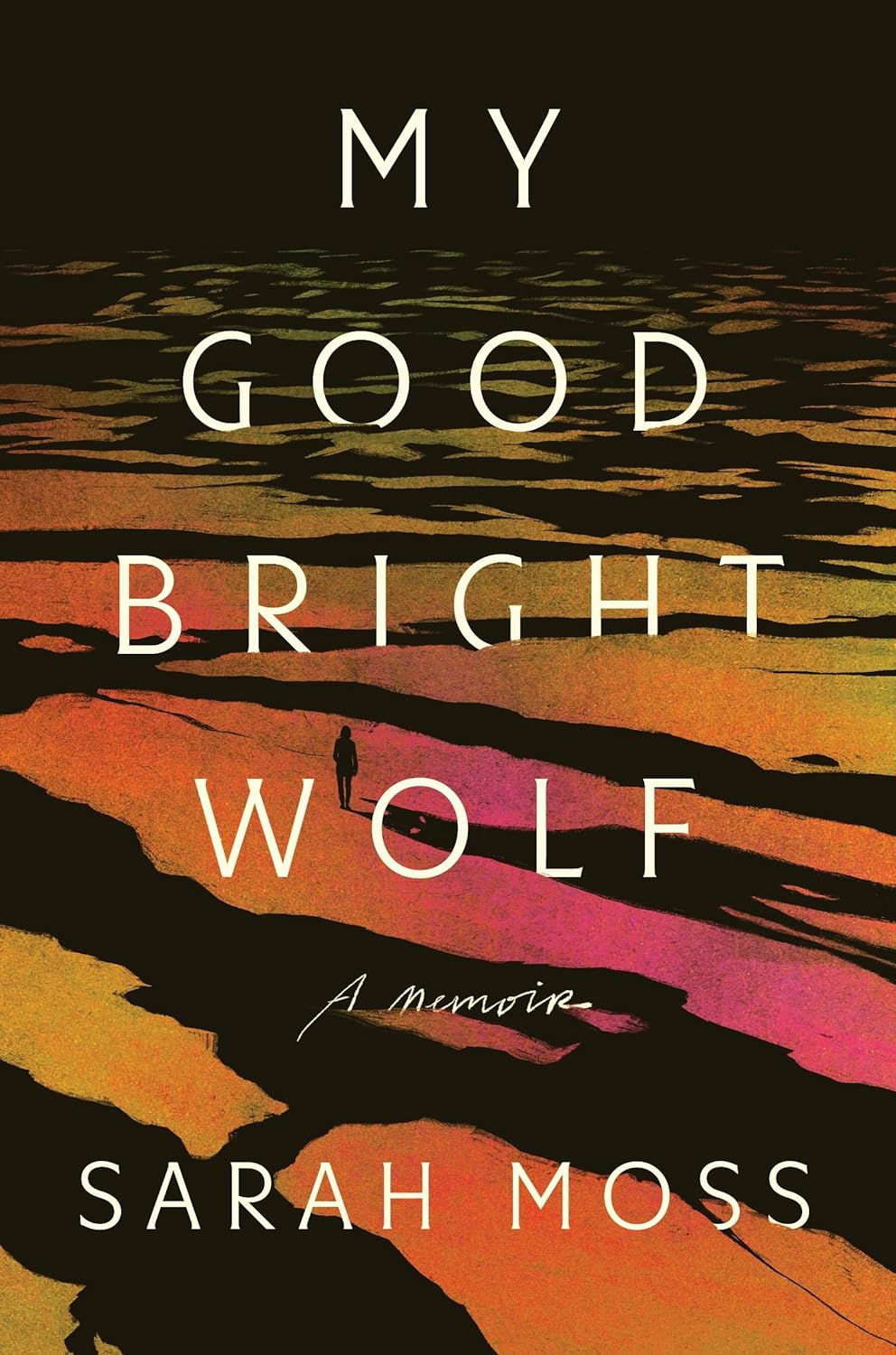My Good Bright Wolf: A Memoir
- By Sarah Moss
- Farrar, Straus and Giroux
- 320 pp.
- Reviewed by Haley Huchler
- December 24, 2024
A perceptive reflection on neglect, anorexia, and the need for nourishment.

Virginia Woolf professed that all writers need a room of their own, but Sarah Moss disagrees. She can write anywhere, from the kitchen table to the bus. But she cannot write while hungry. Anorexia not only leaves her weak, cold, and ill, but also without the ability to put her thoughts on paper. In My Good Bright Wolf, Moss dubs this “the most grievous aspect of my sickness.”
In her memoir, she grapples with untangling the lifelong eating disorder that begins in an unhappy childhood. She weaves the strands of her own story with musings on the literature of girlhood, the failings of the healthcare system, and narratives around women and food, creating an enlightening meditation on what it means to be nourished.
Like many memoirists, Moss starts with a family history, but she doesn’t just recite a list of dates and names. The story of her heritage unfolds as a fable, beginning with a baby born to a poor woodcutter in a forest. From there, she spins loose, fairytale-like yarns about her grandparents and their struggles, leads us to the unlikely marriage of her parents (known here as the Owl and the Jumbly Girl), and then proceeds to build, stone by stone, the restrictive walls of her youth.
From the beginning, her life is about being as small as possible. It starts before little Sarah is even out of her cradle:
“She fed you, on apple puree because you were bad at milk and the Owl didn’t want you to have rice, to love carbohydrates and get fat like the Jumbly Girl.”
The school nurse weighs young Moss and (despite finding her to be a healthy weight) reminds her not to eat sweets and cakes, not to stop “being careful.” Moss loses weight during a bout with the flu, and her father congratulates her. Girlhood begins to mean self-control and constraint, and she knows it doesn’t stop when you grow up. She notices in friends’ fridges the separate foods for their mothers — the fat-free yogurt and the celery. Every adult woman she knows is perpetually on a diet.
All this creates a breeding ground ripe not only for an eating disorder, but for a strong sense of insecurity and instability. Even fiction becomes a place for Moss to fret about her self-worth. Curiously, some of her favorite literary heroines function as dreaded personal foils. She struggles with feeling unable to relate to admired adventurers like Laura Ingalls Wilder and Jo March, identifying instead with their quiet, domestic sisters, Mary and Meg.
My Good Bright Wolf is written primarily in the second person, bridging two voices — one telling the story and the other contradicting it. Even as she commits her truth to the page, Moss cannot fully admit the pain of her endless struggle with food and identity spurred by neglectful parents. At every confession, the opposing narrator reminds Moss that she had it good enough, she was cared for and educated, and she enjoyed privileges denied to others:
“Aren’t you ashamed of it, telling tales? Shouldn’t you have got over it, whatever you say it was, by now?”
But within the narrative, a third voice emerges: that of the wolf. While the rest of the world encourages restriction, thinness, and making yourself smaller no matter the cost, the wolf has a rebuttal. “You’re strong, not too big,” it says. “Don’t worry about that, it’s not interesting.”
Eat, it says.
With medical intervention, Moss’ teenage anorexia is curbed, but that sly fox of a disease rears its ugly head once again in adulthood, this time forcing Moss to be hospitalized. Here, the book shifts to a third-person perspective, conveying the sense that Moss is outside her body and observing her own decline.
The memoir is at times punchy, humorous, and intellectual, with the author ably connecting cultural and literary touchstones with her own story. But My Good Bright Wolf’s most profound strength is its unflinching stare at a harrowing mental illness that threatens to destroy a physical body. Moss might be more concerned with matters of the mind, but she is forced to accept the fact that, without properly nourishing her body, every intellectual and creative pursuit she dreams of will be lost.
She says she wrote this memoir “looking back, for now, from a place of greater safety.” There’s no tidy, permanent recovery from her illness, however. This is real life, not fiction, and Moss is still living it. But she leaves us, at the end of the book, with some of the simple yet hard-won wisdom her guardian, the wolf, has given her:
“No making of art — or love, or war, or peace, or dinner — without a body, no body without food.”
Haley Huchler is a writer from Virginia. She has written for publications including Northern Virginia Magazine and DC Theater Arts. She has a B.A. in English and journalism from James Madison University, where she was editor-in-chief of Iris, an undergraduate literary magazine.